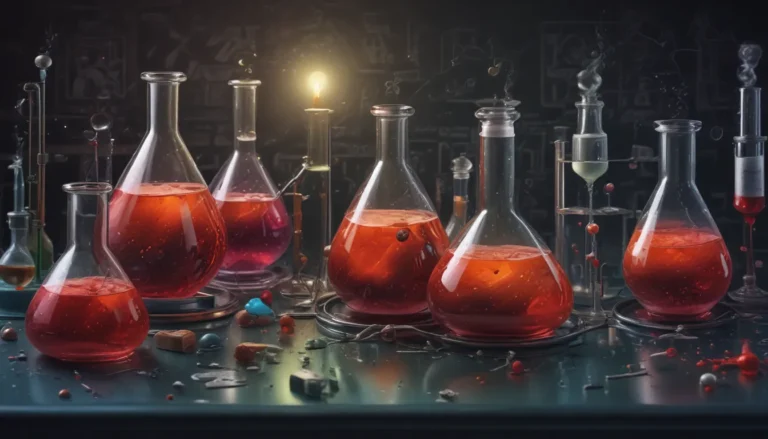A Note About Images: The images used in our articles are for illustration purposes only and may not exactly match the content. They are meant to engage readers, but the text should be relied upon for accurate information.
In today’s world, ethanol, also known as ethyl alcohol, plays a crucial role in various aspects of our lives, from being a sustainable fuel source to an essential ingredient in alcoholic beverages. However, misconceptions and myths often cloud the understanding of this versatile compound. In this article, we will debunk ten common myths about ethanol and provide you with the facts backed by scientific evidence to help you gain a clearer understanding of its importance.
The Versatility of Ethanol
- Ethanol is a renewable and sustainable fuel that reduces greenhouse gas emissions, supports rural economies, and can be produced from diverse feedstocks.
- Ethanol blends enhance octane ratings, reduce tailpipe emissions, and are compatible with existing vehicle engines, offering consumers cleaner-burning fuel options.
Ethanol and the Environment
Myth: Ethanol is harmful to the environment.
One common misconception is that ethanol harms the environment. In reality, ethanol is a renewable and sustainable fuel source that can significantly reduce greenhouse gas emissions when produced from biomass or waste materials.
Fact: Ethanol can be produced from various feedstocks.
Ethanol can be derived from a wide range of feedstocks, including corn, sugarcane, switchgrass, and agricultural waste. This versatility promotes sustainable practices and reduces reliance on a single source for raw materials.
Energy Efficiency of Ethanol
Myth: Ethanol production consumes more energy than it yields.
There is a myth that ethanol production is energy-intensive. However, advancements in technology have increased the energy efficiency of ethanol production, making it a net energy gain for the industry.
Fact: Ethanol blends can enhance octane ratings.
Ethanol’s high octane properties make it an ideal additive for boosting fuel octane levels, leading to improved engine performance and reduced emissions.
Ethanol and Food Production
Myth: Ethanol production leads to food scarcity and higher prices.
Contrary to popular belief, ethanol production does not significantly impact food supplies. The majority of corn used for ethanol production is field corn, primarily destined for animal feed, industrial use, and export markets.
Fact: Ethanol production supports rural economies and agricultural communities.
Ethanol production stimulates local economies, creates jobs, and provides a market for farm products, contributing to agricultural sustainability and rural prosperity.
Ethanol and Engine Compatibility
Myth: Ethanol is incompatible with existing vehicle engines.
Many believe that ethanol is incompatible with existing vehicle engines. However, the vast majority of vehicles can safely use ethanol blends without modifications, offering consumers a range of fuel options.
Fact: Ethanol is a common practice in the fuel industry.
Ethanol blending is widespread in the fuel industry, with blends like E10, E15, and E85 readily available at fueling stations, supporting energy diversity and reducing environmental impact.
Conclusion: Embracing the Facts
After debunking these myths, it’s clear that ethanol offers several environmental and economic benefits when produced and used responsibly. By basing opinions and decisions on factual information, rather than myths, consumers and policymakers can make informed choices for a greener, more sustainable future. Ethanol’s potential as a sustainable energy source continues to evolve, highlighting the importance of critically evaluating misconceptions and embracing the facts for a brighter tomorrow.






